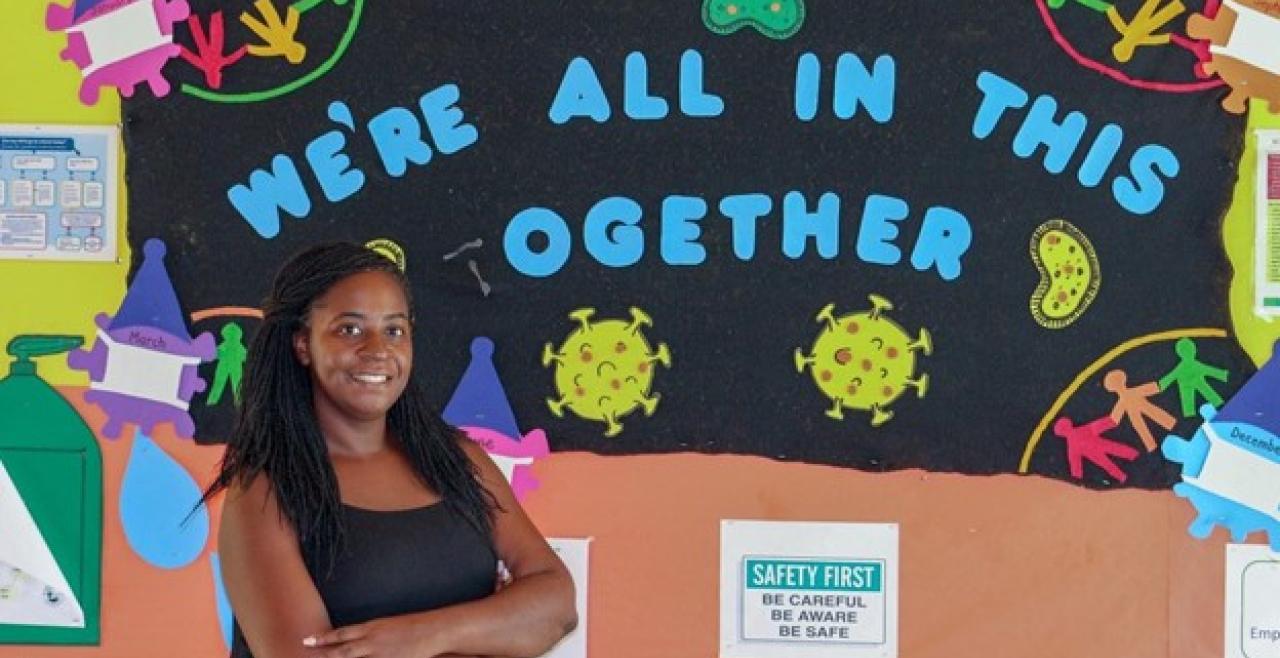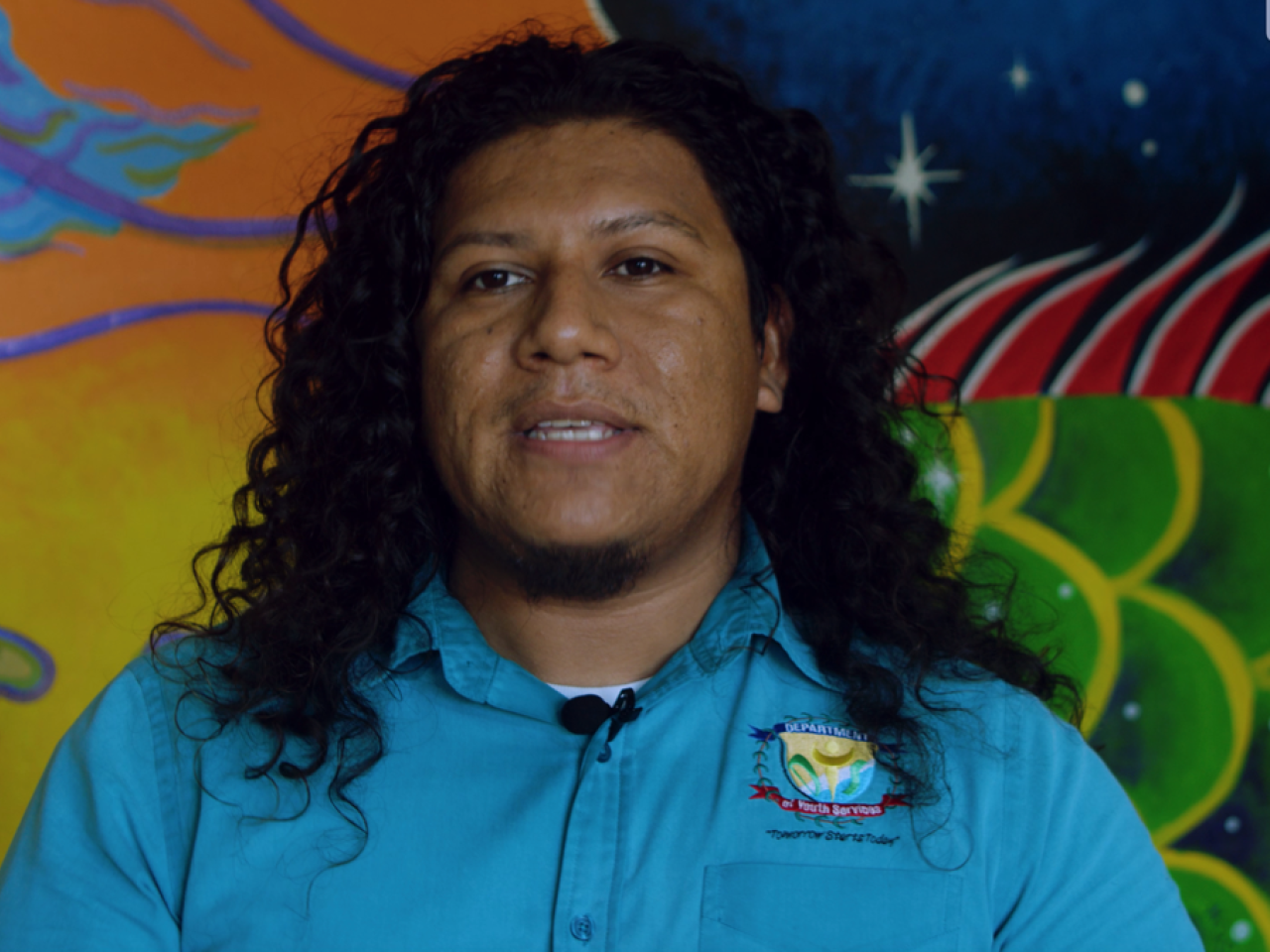In Belize, teacher training makes schools safer for children

BELMOPAN, Belize – In Belize, everyone whose job involves contact with children must report suspected child abuse and trafficking to the authorities. This includes teachers and school personnel.
But according to Tashera Swift-Myers, a school counsellor who teaches life skills to third- and fourth-year secondary school students at Belmopan Comprehensive School, not everyone is aware of these obligations.
“We might take for granted that people know their roles and responsibilities and the vast majority don’t, especially in the area of mandatory reporting of abuse,” she says. “Some teachers were not aware of the law or that it's their legal duty to report [abuse].”
To close this knowledge gap, the Spotlight Initiative worked in partnership with Pathlight International Belize and UNICEF to digitize a training programme from the National Organization for the Prevention of Child Abuse and Neglect (NOPCAN) on mandatory reporting of child abuse and human trafficking. It then rolled out training with primary and high school teachers and administrators, with the objective of building teachers’ capacity to report violence and create a supportive and safe learning environment. An online version of the curriculum has made this critical training more accessible throughout the country.
According to UNICEF, 65 per cent of children aged 1-14 in Belize report experiencing physical punishment and many report psychological abuse and aggression from parents and caregivers. Girls and young women may be especially vulnerable to abuse.
"Rather than seeing a child in a classroom as misbehaving, they may see that behaviour as an indication of what is happening at home." - Tashera Swift-Myers, School Counsellor
Supporting teachers to support students
The training aims to build teachers’ resilience, especially when dealing with challenging behaviour in vulnerable children. It also helps them to recognize the different forms of family violence, including violence against women and girls.
“Training like this might change the teacher’s perspective. Rather than seeing a child in a classroom as misbehaving, they may see that behaviour as an indication of what is happening at home. For many children, school is their safe place,” says Ms. Swift-Myers, who also took part in the programme.
Ms. Swift-Myers encounters a range of these issues in her own work.
“[Children] might have a parent in the household who may be aggressive, there might be alcohol or drug abuse, or they may disclose that they were beaten or ignored by their parents. [Other times,] they open up and share that they know a family member or neighbour who may be experiencing abuse in their homes,” she says.
Sometimes, students on campus may recognize their own relationships as unhealthy or controlling.
“It makes a difference knowing that your son or daughter is supported by a teacher who is well informed." - Tashera Swift-Myers, School Counsellor
Responsibility as a teacher and parent
As a mother, Ms. Swift-Myers says knowing that teachers are engaged in this training gives her greater confidence that her children are well cared for.
“It makes a difference knowing that your son or daughter is supported by a teacher who is well informed. If a child goes to school and reports, the teacher will be able to ask the relevant questions to figure out the situation. Knowing that they will be hopefully more empathetic and manage situations a lot better by knowing the signs, makes me feel at ease as a parent.”
In 2021, approximately 1200 teachers and local management personnel at primary and secondary school level were trained to ensure that they can identify and appropriately respond to family violence in Belize. Additionally, with the support from the Ministry of Education, Culture, Science & Technology, the training now counts towards professional development credits for teachers.

